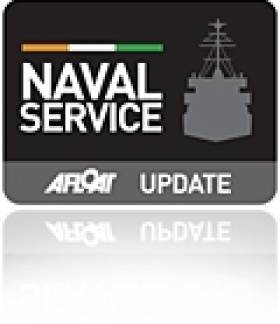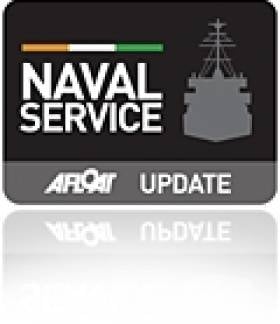Displaying items by tag: Coastal Patrol Vessel
The operation was spearheaded by the ARW with the support of a Naval Service coastal patrol vessel (CPV) and also Air Corps helicopters. High-speed tactical assault craft with ARW teams on board conducted manoeuvres while air-borne teams fast-roped from helicopters onto the deck of the Stena Adventurer. To see photos of the ARW team in action click HERE.
The exercise was designed to enhance the capacity of the Defence Forces to provide the State with a highly specialised maritime armed intervention capability.
Last month the Naval Service conducted close quarter manoeuvres in 'Operation Quixote' off the south-west coast. The exercise involved the entire naval fleet except for the flagship LE Eithne, which performed in gunnery practice, simulated air attacks from the Air Corps and armed naval boarding parties.
UK Registered Trawler Detained off Bray Head
of the Gardai. The L.E. Orla which berthed alongside the harbour's Carlisle Pier, is designated as a coastal patrol vessel (CPV) along with sistership L.E. Ciara (P42).
This is the second detention of a vessel this year. According to the Naval Service in 2010 there were 1666 boardings carried out which resulted in warnings to 70 vessels and eight detentions.

























































